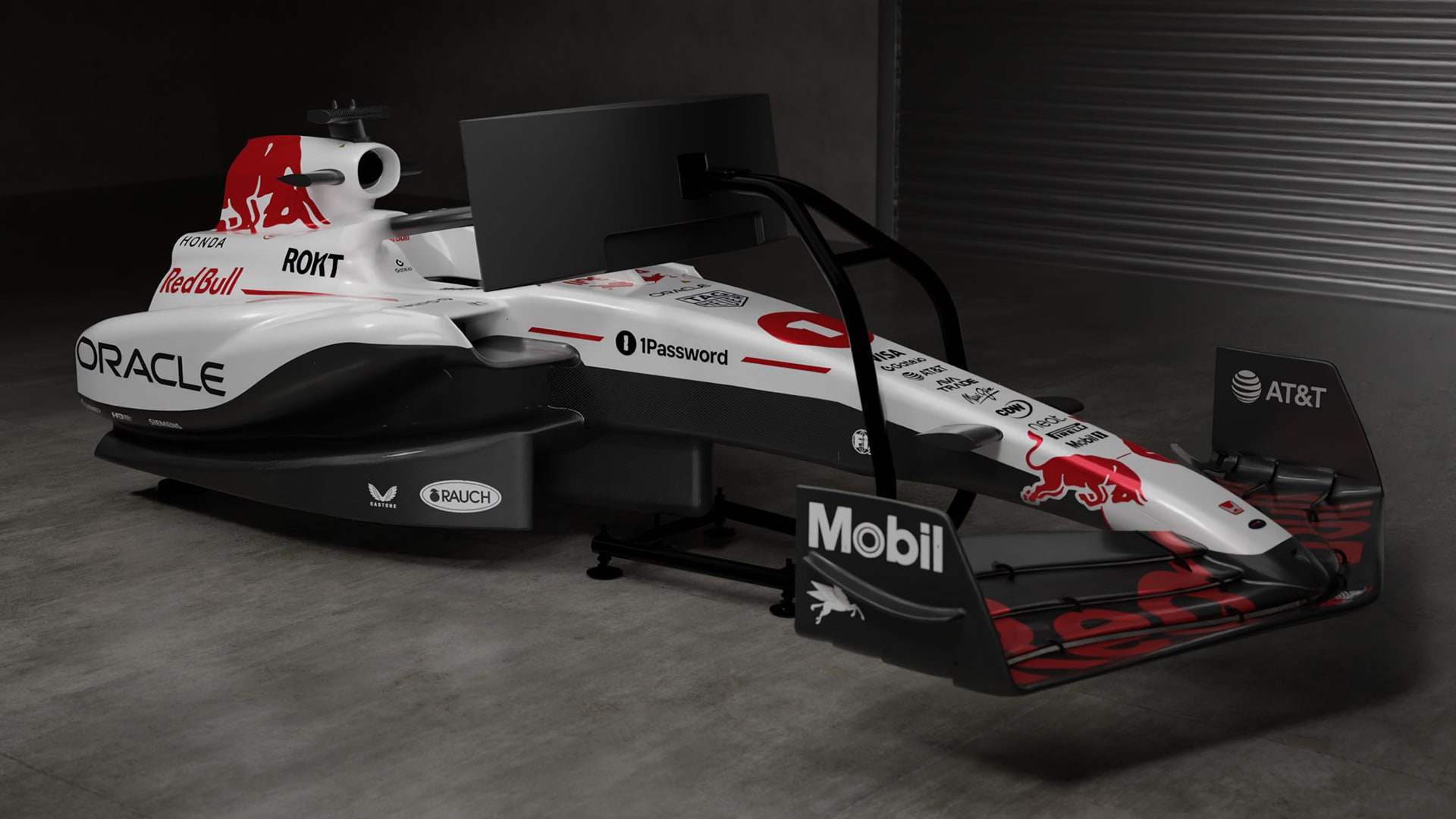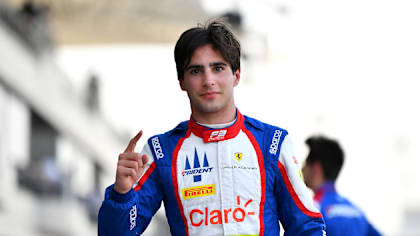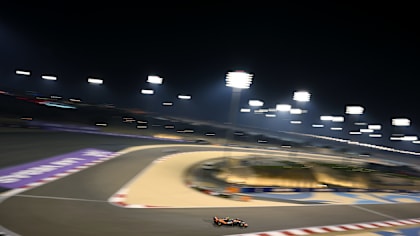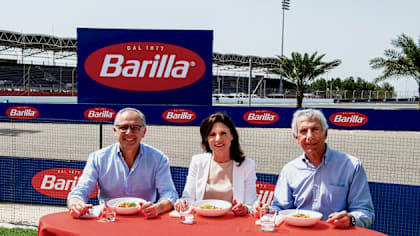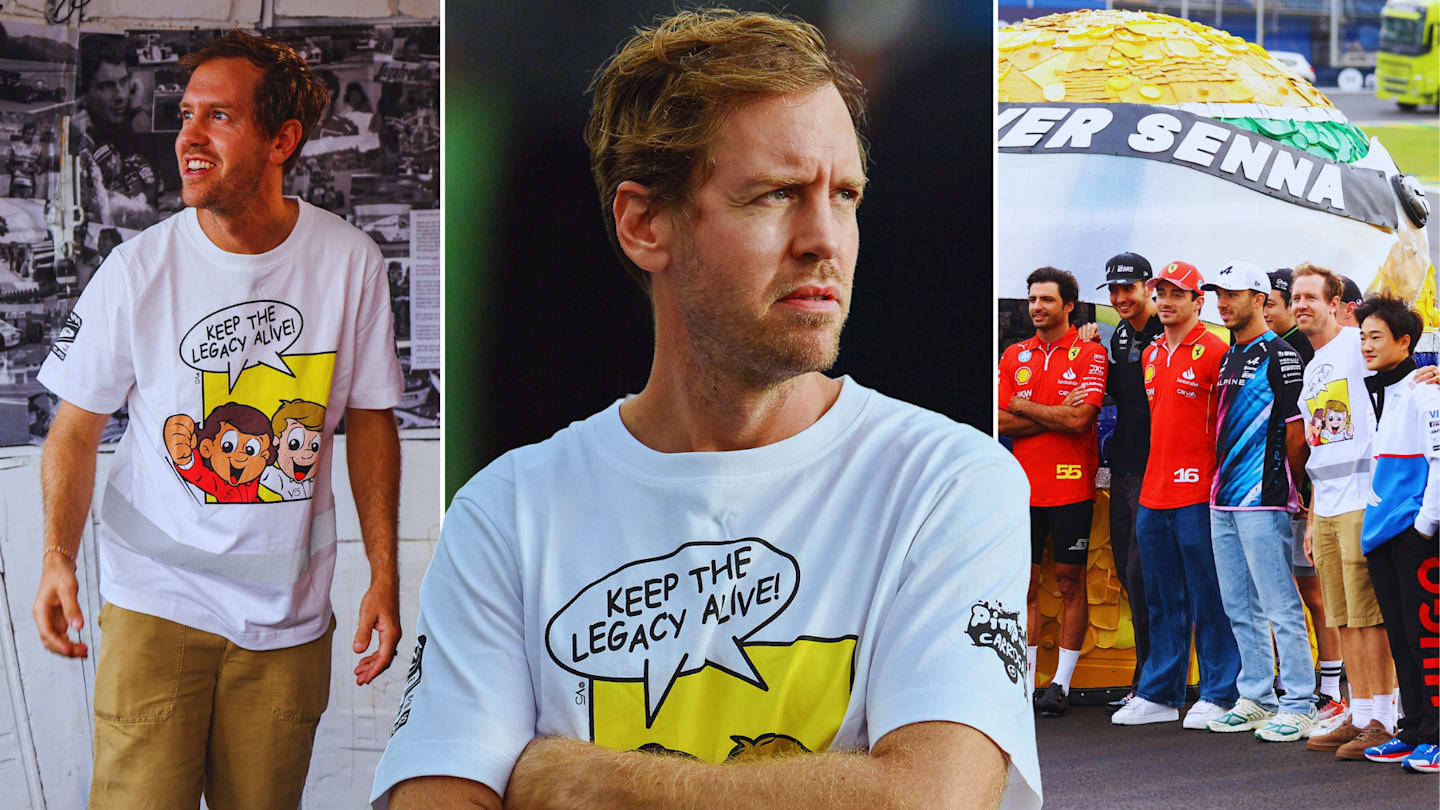
Interview
EXCLUSIVE: Sebastian Vettel on his return to the F1 paddock at Interlagos for another special Senna tribute

Share

Sebastian Vettel made a popular return to the Formula 1 paddock ahead of the Sao Paulo Grand Prix, with the four-time world champion leading another tribute to home hero Ayrton Senna some 30 years on from his passing – in the form of a giant helmet sporting the Brazilian’s iconic design and made using recycled materials. F1.com caught up with Vettel after the presentation to hear all about the project and what Senna means to him…
Thursday’s media duties have wrapped up at a hot and humid Autodromo Jose Carlos Pace, but there’s one more important engagement for the drivers and their teams to get involved in before taking on the weekend and hitting the track.
INSIGHT: Joining Vettel’s run for the ages as F1 remembers Senna and Ratzenberger at Imola
Vettel, just as he did at Imola earlier this year for a track run and demo, has gathered the majority of the F1 grid at the Senna Esses – this year sporting yellow, green and blue kerbs – for a group photo and a special look at what his team have created.
After a round of photos from the world’s media lining the circuit, amid drops of rain, Vettel leads the drivers down the hill and toward the helmet he made in collaboration with internationally renowned artists Matthias Garff and Mundano – using only recycled materials.
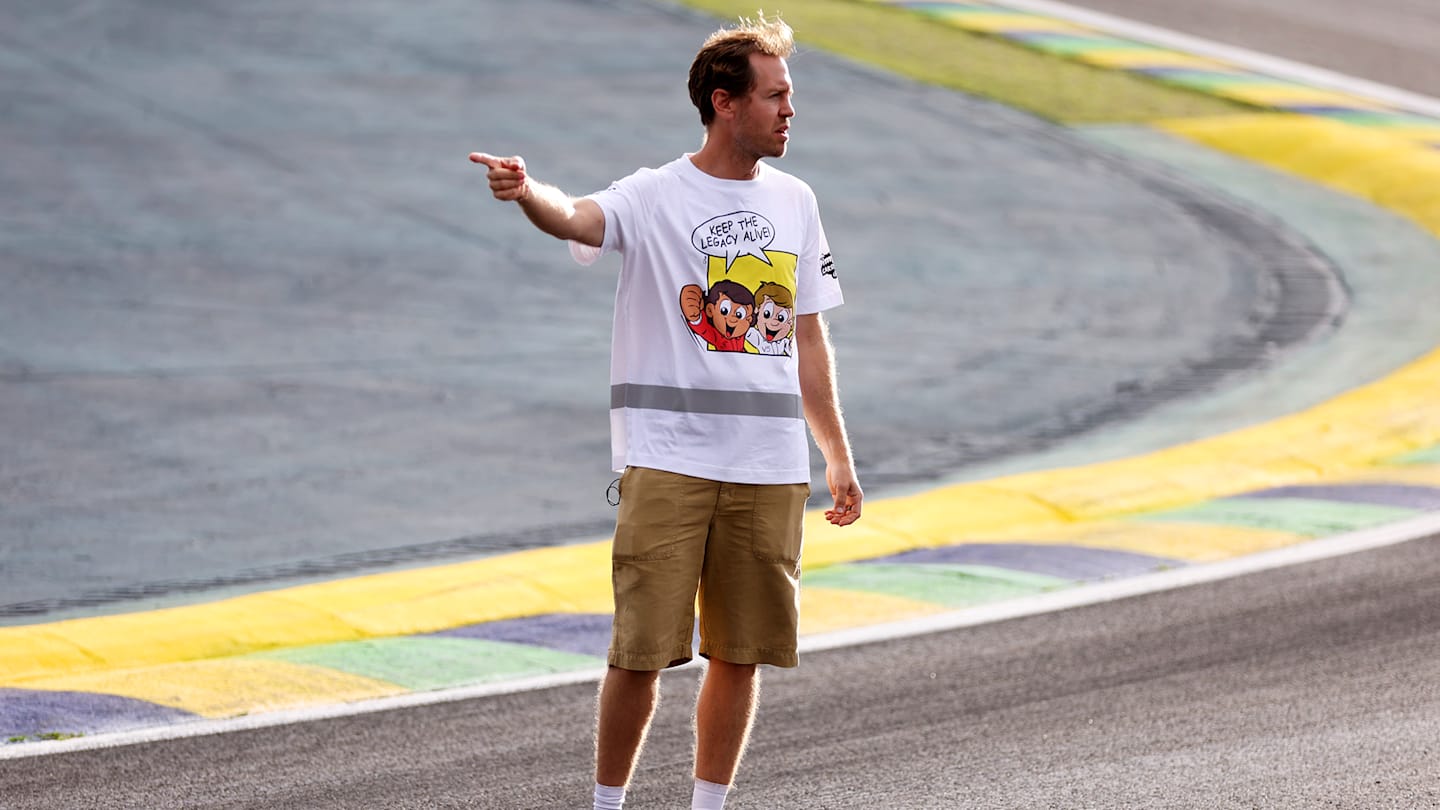
Vettel led a tribute to Senna at Interlagos before the Sao Paulo Grand Prix weekend began
As per the initiative’s press release, it symbolises “both Ayrton Senna’s legacy and the urgent need for environmental stewardship in today’s world” and serves as “a powerful reminder of how collective efforts can lead to meaningful change”.
Vettel amplifies this note as he steps into the helmet and speaks to television crews neatly tucked under the visor, with the inner walls sporting a black-and-white montage of the many magical moments from Senna’s life and career – which yielded three world titles, 41 Grand Prix wins and 65 pole positions.
READ MORE: Who was Ayrton Senna and why is he regarded as one of F1’s greatest drivers?
With those interviews conducted, Vettel steps back outside and takes a moment to talk with F1.com, giving us the background on how the concept came to life, why it was important for him to arrange such an event at Interlagos and the wider environmental message.
“Where to start?” Vettel smiles as we chat next to the helmet, which features a solar-powered sound system to play out his own educational narration inside. “Obviously Imola was incredible and very emotional, but it had something temporary, because we did those laps and the moment passed, which often in life is like this.
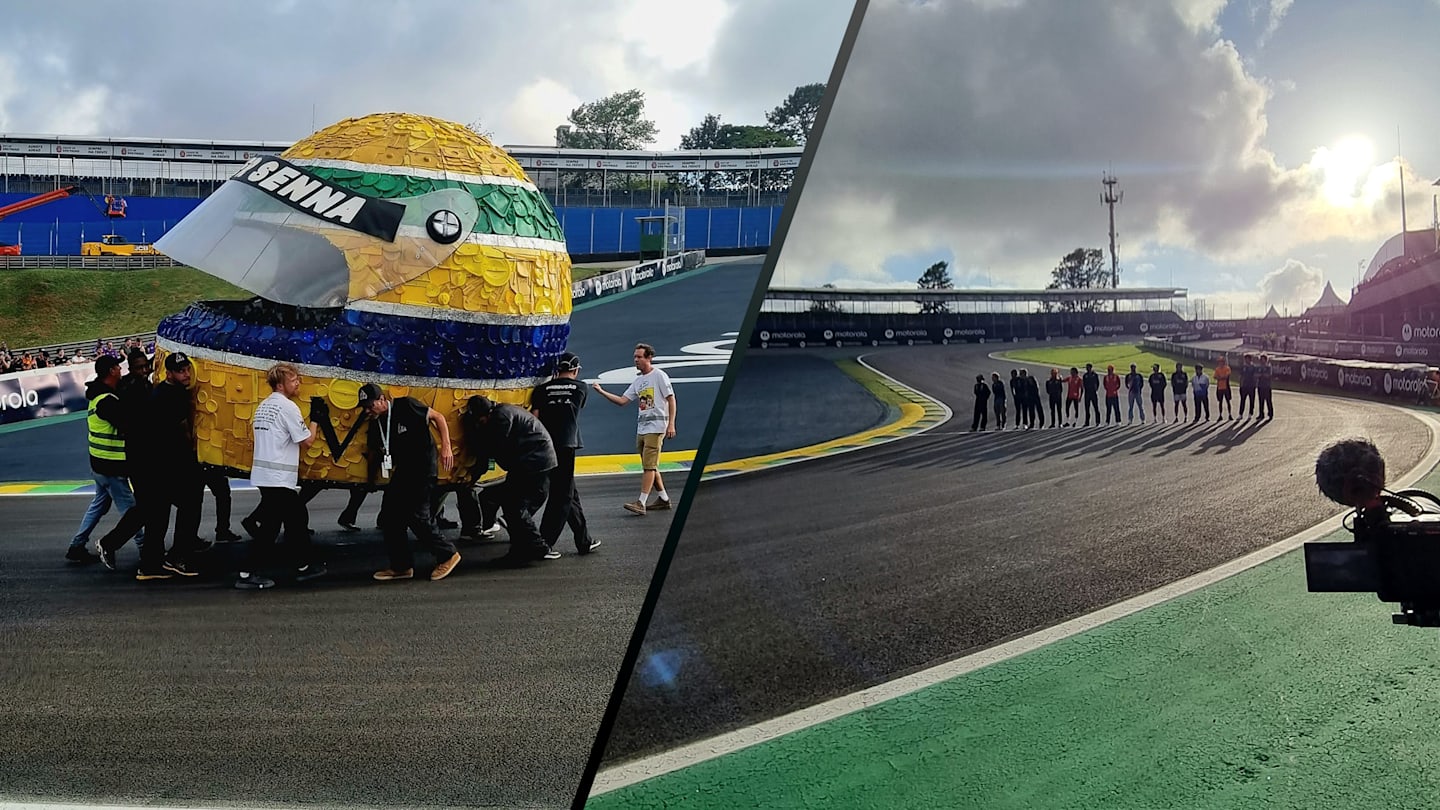
Vettel and current F1 drivers assembled at the Senna Esses for a group photo and a look at the helmet
“So, the idea of thinking about Interlagos and continuing to tell the story around Ayrton, and taking inspiration from a person who had the courage to speak up and was very compassionate, was to try and come up with something that lasts.
“I immediately thought of a sculpture or an installation, so we got together with Brazilian artist Mundano and German artist Matthias Garff, and we decided to go for the helmet, because the helmet is such a strong pull when it comes to recognising a driver – it’s sort of the most personal item you have as a driver.
“Ayrton has such striking colours, he means so much in Brazil, so we thought, let’s build a helmet, but not just build a helmet, let’s do it differently and emphasise another topic, which is the environment and waste management.”
Alongside the presentation of the recycled Senna helmet, Vettel organised a waste picker challenge event around the Interlagos venue, centred on giving visibility to the nearly one million dedicated refuse workers across Brazil and the 20 million around the world.
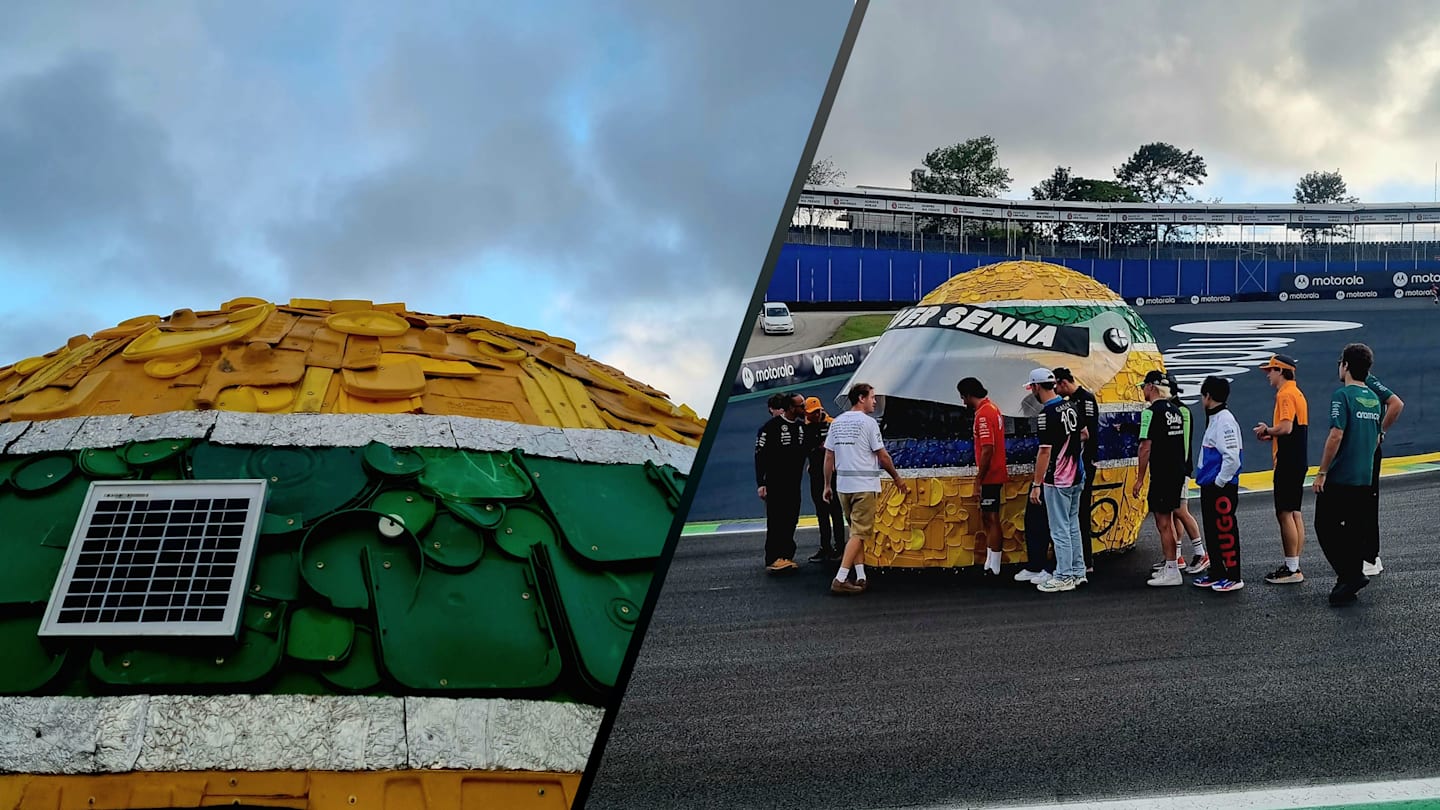
Recycled materials of all shapes and sizes were used to create the giant helmet
“Only very little of Brazil’s waste gets recycled,” he adds. “Also, [we need] to look at the bigger picture, not only Brazil-wide, but [seeing] waste as a resource and not just as waste. It’s a resource that can be circular, that can be fully recycled.
“Designing a product from the get-go, you should think about what happens to it at the end of its life – not just selling it to somebody in the world and then being happy with the money that comes with it.
IMAGE GALLERY: Vettel pays tribute to Senna and Ratzenberger with emotional Imola demo run
“It’s thinking as a resource, because obviously it came from somewhere in the first place and it should go somewhere again, not end up on landfills, at dumps or the oceans. So that, in short, is what we’re trying to do.”
Senna is not Vettel’s only icon, having long looked up to – and eventually raced against – Michael Schumacher, but the Toleman, Lotus, McLaren and Williams driver’s aforementioned willingness to “speak up” and be a beacon of hope for Brazil off the track is something he admires.
“Obviously, I’m German, so growing up Michael was and is still my hero,” says Vettel. “I think what Ayrton stood for is more than just racing. I think for people in Brazil he’s still such a powerful character, and there’s so much inspiration to be taken from that.

Vettel spoke to media from within the helmet, which also sports a montage of memorable Senna moments
“It’s why I feel very proud that we got this [helmet project] together, to have the drivers joining and to have the installation standing next to the track [at the Senna Esses] for the whole weekend. Hopefully then we’ll find a new home that is worthy of it.”
As demonstrated by the current F1 grid, Vettel sees the helmet as “an installation that you can go inside and experience” rather than simply observe. So, could its future home be at the Instituto Ayrton Senna, or elsewhere?
READ MORE: Our writers celebrate their favourite and most memorable Ayrton Senna moments
“The foundation is very involved, but my dream would be in South America, if there’s a museum that would be happy to exhibit it for a certain amount of time, to find a home after this event,” he comments.
Underlining the project’s message, Vettel adds: “I think the timing is right. Obviously our world is changing fast and there’s so many topics when we talk about the environment that needs addressing, so many topics when we talk about social issues, but it’s important to understand that they’re linked.
“We’ve got to explain to people what is going to happen, what we are all trying to do in ensuring a future for the next generations. The next generations of racing drivers, girls and boys, to make sure F1 exists way down the road and people can enjoy the sport in the future.”
YOU MIGHT ALSO LIKE
